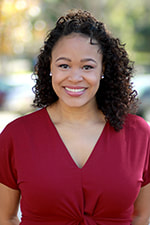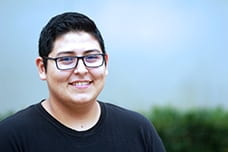STUDENT PROJECTS
School of Education Doctoral Students Dissertation Projects.
Dissertation Projects
Learning to enact equitable mathematics teaching practices through critical self-reflection: a study of primary teacher candidates
JIWON LEE
My dissertation project examines the role of critical reflection in supporting teacher candidates to develop their identities as equitable mathematics teachers and enact equitable practices in mathematics classrooms. Unequal learning opportunities in mathematics classrooms for children, particularly those from marginalized backgrounds, continue to persist. Rigid ways of acknowledging mathematical participation and competency continue to dominate many classrooms and systematically categorizes children into a hierarchy of intelligence, excluding those perceived as incompetent from learning opportunities. This has implications for children’s mathematical identities and future careers. Teacher education can play a significant role in disrupting these injustices. My study aims to develop a theoretical mapping of candidates’ different learning trajectories when engaged in critical self-reflection work and a protocol that teacher educators can utilize to support candidates’ learning.
Civic engagement of marginalized youth: Friendship networks and motivation
CHRISTOPHER WEGEMER
Grounded in a long-term research-practice partnership, my dissertation investigates the role of social networks in the civic engagement of adolescents at a high school that serves primarily low-income Latinx students. First, I develop a novel model of youth civic motivation grounded in expectancy-value theory. Then, I apply longitudinal social network analysis techniques to distinguish between the effects of friendship formation and motivational antecedents on civic engagement. Through an asset-based approach that acknowledges agentic decisions regarding civic participation rather than framing behavior in terms of deficiency, I seek to understand psychosocial predictors of civic engagement for youth who are underrepresented in both research and policy. I aim to provide novel insight into the diverse manifestations of civic engagement in ways that inform practice, which I believe is especially important as our youth confront an increasingly contentious sociopolitical landscape.
The Influence of Immersive Experiences on Culturally Responsive Pedagogy: An Explanatory Sequential Mixed Methods Study
KHAMIA POWELL
My research examines the influence of a teacher intervention that focuses on the development of empathy and color consciousness, as a method to facilitate, motivate, and support the enactment of culturally responsive pedagogy. This study is an explanatory sequential mixed method design that uses a multitude of data including surveys, semi-structured interviews, classroom observations, and participant artifacts. I hope this research can help teachers feel supported and empowered in ways that promote the enactment of more culturally responsive teaching practices to meet the growing and shifting needs of students of color. The demographics of the United States’ public-school systems are becoming more diverse and culture is central to learning. Therefore, teachers must be prepared to take an asset-based approach that acknowledges, responds to, and celebrates students’ culture to design content, foster environments, and create opportunities that are equitable for a multicultural student demographic.
The Latinx Male Teacher Pipeline
JUAN GAYTAN
My research looks into how Latinx men conceptualize the teaching profession and how that functions to either motivate them to pursue a career as educators or dissuades them from the profession. This is done using semi-structured interviews of Latinx male high school students, teacher credential students and veteran teachers to track how this conceptualization changes throughout the leaky Latinx Male Teacher Pipeline. I hope this research can be used to recruit diverse educators by creating culturally responsive strategies that speak to what truly motivates these men to pursue a career as teachers, which is pivotal if our educators are to keep pace with our increasingly diverse student population.
Understanding the Practices and Processes of Doing Networked Improvement Science in a Teacher Preparation Network
CARLOS SANDOVAL
This study focuses on examining how networked improvement communities (NICs) are enacted using a NIC run by the California Teacher Education Research and Improvement Network. The work of performing NICs is comprised of micropolitics and power relations that shape what improvement efforts focus on, what aims they seek to accomplish, and how they attempt to accomplish their aims. I seek to unveil these dynamics to understand how NICs operate and in what ways the processes can be improved, particularly for advancing equity and social justice.
Alumni Dissertation Projects
[Re]imagining Student Mathematical Engagement through Problem Posing Pedagogy
by Priyanka Agarwal
The study uses researcher-practitioner partnership (RPP) model to design, implement and examine math instructional lessons and pedagogy, centered on mathematical problem-posing (as against just problem-solving), in a predominantly working class Latinx neighborhood middle-school. This qualitative study has two goals: (1) understanding the challenges and affordances of establishing problem posing as a central feature of classroom instruction, and (2) identifying the ways in which problem posing promotes student engagement and learning. The findings will serve to provide preliminary ideas of problem-posing pedagogy’s potential to challenge the deeply-rooted discourse of poverty and deficits in education.
Designing After School Science Programs to Connect Schools, Homes, and Communities
by David Liu
The purpose of this study is to investigate how to develop science after school programs that support the deep and meaningful STEM engagement of girls of color. This project will focus on how to empirically test design features in a research practice partnership with a local school.
Participation in a Video Club: Influences on Teachers and Teaching, Students and Learning
by Tara Barnhart
This study investigates the critical discourses developed by high school science teachers engaged in a semester-long video club professional development series. The focus of the video club was to enhance participants’ abilities to facilitate students’ thinking and reasoning in science.
Appropriating and Enacting Literacy Teaching Practices in the Context of the Pathway Project Professional Development Program
by Huy Chung
In this study, I investigate the types of pedagogical tools middle school English teachers take up and adapt from literacy professional development. Moreover, I am also interested in how these tools shape their own learning as well as their students’ learning. Finally, I also seek to understand cognitive and contextual factors that may influence how teachers are enacting these tools in their classrooms.
Broadening participation in mathematics for students from non-dominant backgrounds: The relationship between teacher practice, noticing and pedagogical commitments
by Janet Garcia-Mercado
This study draws on the construct of teacher noticing to examine how teachers attend to and reason about classroom features that influence learning opportunities for non-dominant groups. Just as research examines how teachers’ knowledge, beliefs, and identities influence their practice, I use the lens of noticing to explain the cognitive processes teachers use engaging in these teaching practices. Through this work, I seek to make explicit the noticing of secondary mathematics teachers and the relationship between their noticing, practices and pedagogical commitments.
Physical Therapist Students’ Clinical Reasoning and Characterizations of Practice
by Sarah Gilliland
This study investigates how doctor of physical therapy students engage in clinical problem solving. Specifically, I examine the types of problems students frame and solve during an encounter with a patient and how their perspectives on practice influence their clinical decision making.
A Model of Professional Development for Field-Based Teacher Educators: Addressing Historical Problems Through Local Collaboration
by Jessica Tunney
This dissertation examines a professional development intervention that brought together university supervisors of student teaching with partner classroom mentor teachers to develop a shared vision of mathematics instruction and shared approaches to mentoring pre-service teachers in the field. The study contributes to practice-based teacher education by offering a model design university-school collaborations aimed at supporting pre-service teachers in connecting learning across university and field site settings.
A Longitudinal Investigation of Beginning Teachers’ Conceptions and Enactments of Equity-Minded Mathematics Practices
by Cathery Yeh
This study examines the factors that impact the retention and attrition of culturally and linguistically diverse elementary school teachers and support or impede their development and implementation of reform-based, equity-minded mathematics practices.
Learning Affordances for Teachers and Students in a Summer Lab School
by Doron Zinger
I examine an alternative teacher certification program aimed at preparing primarily Latinx and African American teacher candidates for instruction in segregated urban schools. In this project I work closely with first year teachers as they prepare and begin teaching in their own classroom to identify ways of improving urban science teacher preparation and opportunities for students to meaningfully engage with and learn science.













